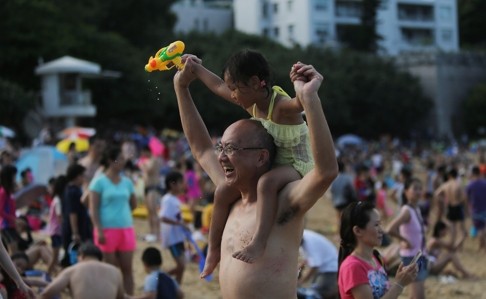
A child of divorced parents should not have to choose between them
Paul Yip and Melissa Chan say the ‘parental responsibility model’ that the Hong Kong government proposes should guide our custody laws would reduce stress on the affected children

The government recently launched a pubic consultation on how to amend our legislation on child custody and access, in response to the rising number of divorces in Hong Kong. Data shows that the total number of divorce decrees granted in 2013 (22,271 cases) was more than 10 times the number in 1981 (2,060 cases) in Hong Kong, and so more children are affected. The government should be commended for taking this step.
The custodial model, where the court grants one parent sole custody of the child, would be replaced by the “parental responsibility model” in use in England, Scotland, Australia and New Zealand. Under this new model, it is proposed that the law would no longer grant one parent all the power in making major decisions for the child. Instead, both parents would continue to have responsibility. And the child could continue seeing both parents if it was in the child’s best interest.
In our recent study on divorces in Hong Kong, commissioned by the Central Policy Unit, child custody and access has been the top issue for the court, followed by maintenance. In the early 2000s, over half of screened cases required the court to deal with child custody issues. In the past five years, this figure has dropped to between 35 and 45 per cent, probably as a result of an increase in the number of childless couples filing for divorce. Nevertheless, it is estimated that the percentage of children affected by divorce in the population has risen from 4 per cent in 2001 to 7 per cent in 2011 – some 81,000 children in 2011, up from 57,000 in 2001.

In our interviews with divorcees and social workers, most children have their own preferences in choosing which parent to stay with. However, it may not be in their best interests to put them in a situation where they have to make such a decision. There is much unresolved grief and anger in the divorce process. Children often become the topic of debate during custody conflicts. Both parents want their child to take their side, and parental alienation can occur. All this can harm a child’s well-being.
Removing the concept of ‘winning’ could lower the chances of parental alienation and avoid putting the child under the spotlight and causing them stress
Moreover, the relationship between the child and parent granted custody is not always positive, according to our interviews. In some cases, the child blamed the parent for depriving them financially, or for the emotional trauma caused.
There are, of course, some cases where the parent not granted custody can still meet their child and take part in their life. And there are other cases where the custodial parent is much better off living apart from the non-custodial parent, which was a stress factor.
The new model would take away unnecessary legal disputes between parents. Removing the concept of “winning” could lower the chances of parental alienation and avoid putting the child under the spotlight and causing them stress. In addition, single parents are twice as likely as the general population to live below the poverty threshold. With the new model, we hope that the mentality of joint responsibility, including financial means, will be strengthened.
Nonetheless, it would not fix all problems; the government still needs to provide assistance, for example financial and housing, and speed up the process of applying for the compassionate rehousing scheme. Moreover, flexible working hours and the provision of childcare services are key for divorced parents getting a job. Simplifying, or providing more education on, the legal procedures of divorce, would certainly help those affected.
Divorce itself is a stressful event for families, particularly the children. Society has to do whatever it takes to protect children’s interests, and prevent more harm to them than the divorce has already caused. Hopefully, the changes to the legislation can help alter the mindset and behaviour of divorcing couples about their responsibility to their children.
Paul Yip is a professor in the Department of Social work and Social Administration, and Melissa Chan is an intervention researcher, at the University of Hong Kong